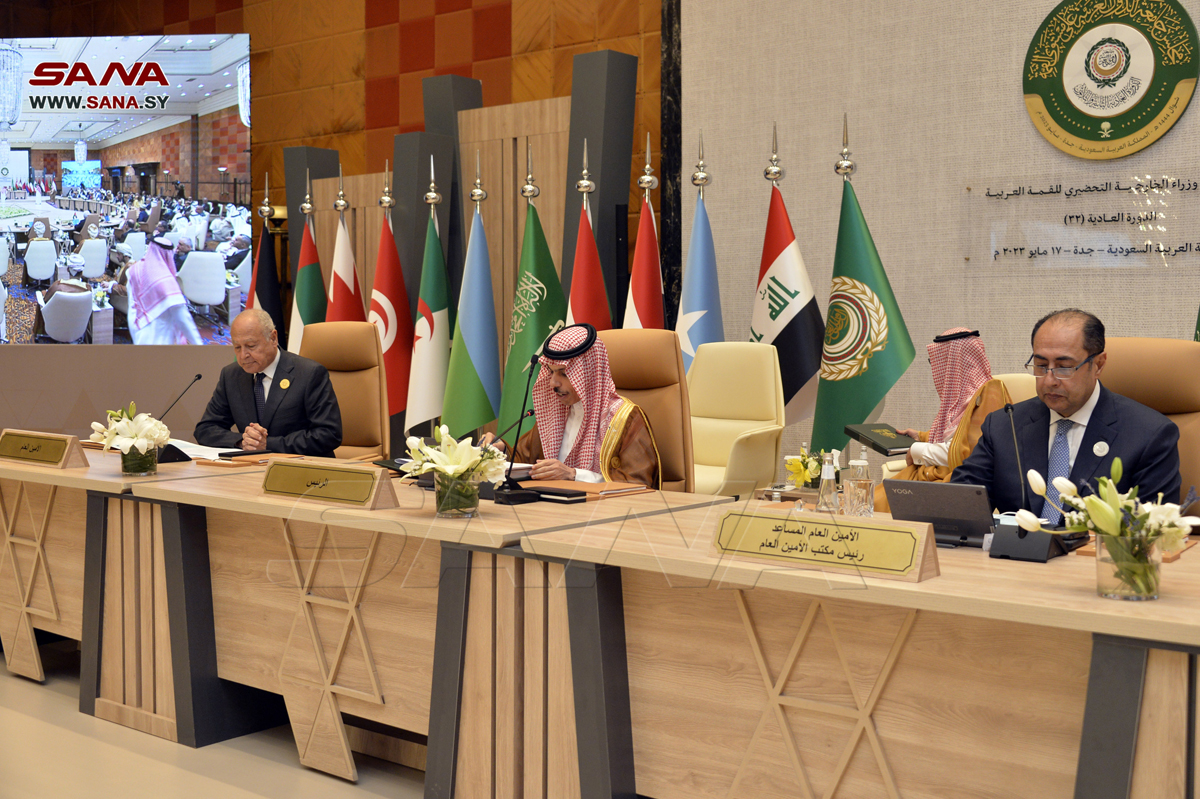In recent weeks, significant developments have taken place regarding the Syrian issue. “High-level” Arab meetings, deemed as crucial, were convened with the objective of addressing the situation. One of the outcomes of these meetings was the decision to pursue a path toward involving the Assad regime once again in the Arab League.
During these gatherings, statements and resolutions were issued, emphasizing the imperative of resolving the Syrian crisis in a step-by-step manner, in alignment with the principles outlined in Security Council Resolution 2254.
Unfortunately, the foreign minister of the Assad regime, Faisal al-Mekdad, undermined the significance of these statements by denying and rejecting certain provisions.
No to the principle of step for step
Jordanian Foreign Minister Ayman Safadi, in an interview with Der Spiegel newspaper, confirmed that the initiative launched by Jordan to address the Syrian crisis is predicated on the principle of incremental progress.
However, Mekdad contradicted this notion in an interview with Russia Today, stating that the Amman meeting did not explicitly discuss the “step-for-step” approach. He clarified that the discussions in Amman focused on formulating a series of steps to achieve resolutions for the challenging situation that Syria has endured.
Mekdad further elaborated, stating, “In the Amman statement, we emphasized the necessity of seeking a gradual solution to the Syrian crisis, acknowledging that eradicating terrorism and revitalizing the economy cannot be accomplished overnight. The return of refugees also requires the establishment of conducive conditions.”
No to the implementation of Resolution 2254
In addition to rejecting the “step-for-step” approach, Mekdad expressed reluctance to implement UN Resolution 2254 unless it aligns with the Assad regime’s perspective.
The statement issued in Amman emphasized that the meeting marked the beginning of a series of discussions aimed at finding a resolution to the Syrian crisis in accordance with Security Council Resolution 2254. It underlined the necessity of addressing all the consequences arising from the humanitarian, political, and security crisis.
The Arab League resolution also stipulated the establishment of a ministerial liaison committee, comprising Jordan, Saudi Arabia, Iraq, Lebanon, Egypt, and the Secretary-General, tasked with monitoring the implementation of the Amman statement. One of the committee’s responsibilities is to engage in direct dialogue with the Syrian government to achieve a comprehensive solution to the Syrian crisis that addresses all its repercussions, following a step-for-step approach and in accordance with Security Council Resolution 2254.
However, Mekdad reiterated that the Assad regime is prepared to implement the UN resolution in a manner consistent with its own perspective and interests.
Mekdad emphasized the commitment of the Assad regime to implementing the provisions outlined in the resolution, citing the contributions of friendly nations in its development. He reiterated the regime’s intention to fulfill obligations relevant to the Syrian Arab Republic as prescribed in the resolution.
Building upon this commitment, Mekdad stated that the pursuit of a political solution hinges upon eradicating terrorism and revitalizing the economic situation in Syria. In this regard, he stressed the necessity of lifting the sanctions imposed on the Syrian state to facilitate the restoration of stability and progress.
No to elections
Furthermore, Mekdad explicitly refused to engage in discussions concerning detainees, elections, and amending the constitution, as stipulated in Resolution 2254.
The Amman statement underscored the importance of enhancing collaboration to facilitate the exchange of abductees and detainees, as well as the search for missing persons. It emphasized the need for a thoughtful approach involving all relevant parties and international organizations.
When questioned about the regime’s willingness to address past issues, Mekdad expressed skepticism, asking about the specific issues being referenced. He highlighted that Syria has successfully conducted three presidential elections, four parliamentary elections, and local administration elections, emphasizing that they have fulfilled these electoral processes independently. He asserted that the regime does not take instructions or orders from external entities.
Mekdad further remarked that certain parties refuse to acknowledge elections in which their proxies or supporters do not secure power, regardless of the democratic nature of those elections. He suggested that these parties prioritize their own interests and desire to see their own agents and preferred individuals assume power.
This article was translated and edited by The Syrian Observer. The Syrian Observer has not verified the content of this story. Responsibility for the information and views set out in this article lies entirely with the author.


